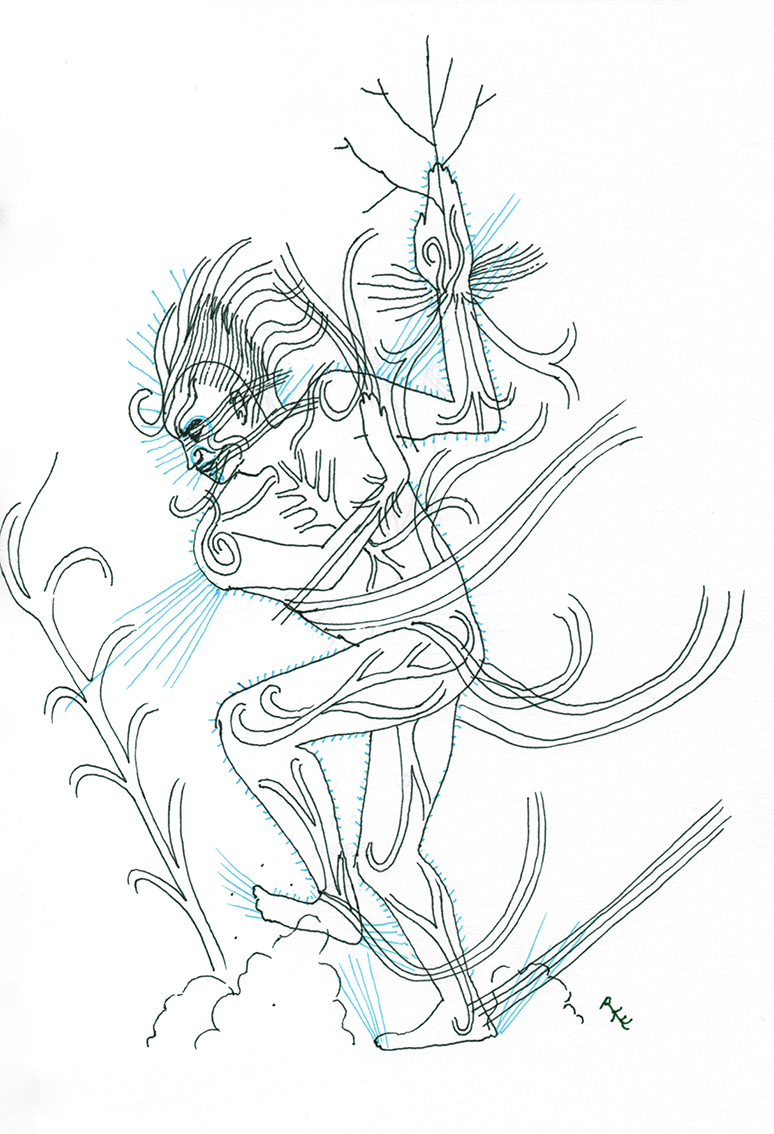Taking Sides: Urban Wandering as Decolonial Translation and Critique of Settler Colonialism
DOI:
https://doi.org/10.25071/1925-5624.40385Resumo
Resumo: O colonialismo fragmenta o sentido. Este ensaio toma a fragmentação colonial do sentido como uma questão de tradução e oferece uma metodologia decolonial para desvendar suas implicações políticas na medida em que nos movemos de uma lado para o outro da linha colonial. A metodologia baseia-se no processo autoconsciente de errância, de um estar à deriva no espaço urbano, o que os Situacionistas chamavam de “dérive”. Dois estudos de caso baseados na perspectiva teórica decolonial itinerante são apresentados. O primeiro é um esboço da fronteira militar entre os EUA e o México, o segundo está relacionado ao Dia de Colombo e ao Dia do Índio. Nos estudos de caso, traduzir é tratado como uma questão de sintonizar-se, como em uma conversa ou estação de rádio. A metáfora da tradução com o ato de sintonizar nos permite endereçar as questões práticas e concretas da tradução em situações cotidianas, bem como nos debates contemporâneos dos estudos da tradução.
Palavras-chave: tradução; colonialismo; metodologia decolonial; fronteira, dérive
Referências
Anzaldúa, Gloria. Borderlands/La Frontera. Aunt Lute Books, 1987.
Bandia, Paul. Translation as Reparation: Writing and Translation in Postcolonial Africa. Taylor and Francis, 2014.
Battiste, Marie and James Youngblood Henderson. Protecting Indigenous Knowledge and Heritage: A Global Challenge. University of British Columbia Press, 2000.
Buzelin, Hélène. “Unexpected Allies: How Latour’s Network Theory Could Complement Bourdieusian Analyses in Translation Studies.” The Translator, vol. 11, no. 2, 2005, pp. 193-218.
Chacaby, Maya Odehamik. “Crippled Two-Tongue and the Myth of Benign Translatability.” Tusaaji: A Translation Review, vol. 4, no. 4, 2015, pp. 1-11.
Debord, Guy. “Theory of the Dérive.” Situationist International Anthology, edited and translated by Ken Knabb. 1958. Bureau of Public Secrets, 1989, pp. 50-55.
Degraff, Michel. “Against Creole Exceptionalism.” Language, vol. 80, no. 4, 2003, pp. 834-839.
Degraff, Michel. ”Linguists Most Dangerous Myth: The Fallacy of Creole Exceptionalism.” Language in Society, vol. 34, no. 4, 2005, pp. 533-591.
Frye, Marilyn. The Politics of Reality: Essays in Feminist Theory. Crossing Press, 1983.
Geertz, Clifford. “From the Native’s Point of View: On the Nature of Anthropological Understanding.” Local Knowledge: Further Essays in Interpretive Anthropology. Basic Books, 1983, pp. 55-70.Gentzler, Edwin. “Translation without Borders.” Translation. 3, Spring, 2014. no page numbers.
Gordon, Avery, 2008, Ghostly Matters: Haunting and the Sociological Imagination. U of Minnesota P.
Guha, Ranajit. “The Prose of Counter-Insurgency.” Selected Subaltern Studies, edited by Ranajit Guha and Gayatri Spivak, Oxford University Press, 1988, pp. 45-86.
Hauser, Christine. “Blasting in Construction of Border Wall Is Affecting Tribal Areas.” New York Times, 11 Feb. 2020, updated 15 Feb. 2020, www.nytimes.com/2020/02/11/us/trump-border-wall-arizona-nativeamericans.html. Accessed 8 May 2020.
Khatib, Abdelhafid. “Attempt at a Psychogeographical Description of Les Halles.” Translated by Paul Hammond. Internationale Situationniste, no. 2, December 1958, www.cddc.vt.edu/sionline/si/leshalles.html. Accessed 8 May 2020.
Kohut, Heinz, “Introspection, Empathy, and the Semicircle of Mental Health.” The Search for the Self: Selected Writings of Heinz Kohut 1978-1981, edited by Heinz Kohut and Paul Ornstein. 1981. Karnac Books, 2011, pp. 537-567.
Kothari, Rita. “Grierson’s Linguistic Survey of India: Acts of Naming and Translating.” A Multilingual Nation: Translation and Language Dynamic in India, edited by Rita Kothari, Oxford University Press, 2018, pp. 116-132.
Kothari, Rita. “Translation, Language, Anthropology: Notes from the Field.” Interventions: International Journal of Postcolonial Studies, vol. 18, no. 1, 2016, pp. 43-59.
Massumi, Brian. Politics of Affect. Polity, 2015.
Niranjana, Tejaswini. Siting Translation: History, Post-Structuralism, and the Colonial Context. University of California Press, 1992.
Pratt, Mary Louise. Imperial Eyes: Travel Writing and Transculturation. Routledge, 1992.
Price, Joshua. “Whose America? Decolonial Translation by Frederick Douglass and Caetano Veloso.” TTR: Traduction, Terminologie, Rédaction, vol 28, no. 1-2, 2015, pp. 65–89.
Proctor, Robert N., editor. Agnotology: The Making and Unmaking of Ignorance. Stanford University Press, 2008.
Rafael, Vicente L. Contracting Colonialism: Translation and Christian Conversion in
Tagalog Society Under Early Spanish Rule. Duke University Press, 1996.
Rafael, Vicente L. Motherless Tongues: The Insurgency of Language Amid Wars of Translation. Durham: Duke University Press, 2016.
Rich, Adrienne. Blood, Bread, and Poetry: Selected Prose 1979-1985. WW Norton, 1994.
Romero, Simon. “Tribal Nation Condemns ‘Desecration’ to Build Border Wall.” New York Times, 26 Feb. 2020, updated 2 Mar. 2020, www.nytimes.com/2020/02/26/us/border-wall-cactuses-arizona.html. Accessed 8 May 2020.
Schiavone Camacho, Julia. “Re: Hola.” Received by Joshua M. Price, 10 of Jan. 2019. E-mail.
Simon, Sherry, and Paul St-Pierre. Changing the Terms: Translating in the Postcolonial Era. Orient Longman, 2002.
Smith, Danez. “It Doesn't Feel Like A Time To Write.” Buzzfeed, 23 May 2016, www.buzzfeed.com/danezsmith/poem-it-doesnt-feel-like-a-time-to-write-bydanez-smith?utm_term=.cpwj6bbdLY#.myO7yBBA2D. Accessed 31 March 2020.
Spivak, Gayatri Chakravorty. “Translating into English.” An Aesthetic Education in the Era of Globalization. Harvard UP, 2012, pp. 256-274.
Sullivan, Shannon and Nancy Tuana, editors. Race and Epistemologies of Ignorance. SUNY Press, 2007.
Wolf, Micaela. “The Third Space in Postcolonial Representation.” Simon and St-Pierre, pp. 127-45.
Downloads
Publicado
Como Citar
Edição
Seção
Licença

This work is licensed under a Creative Commons Attribution-NonCommercial-NoDerivs 3.0 Unported License.

